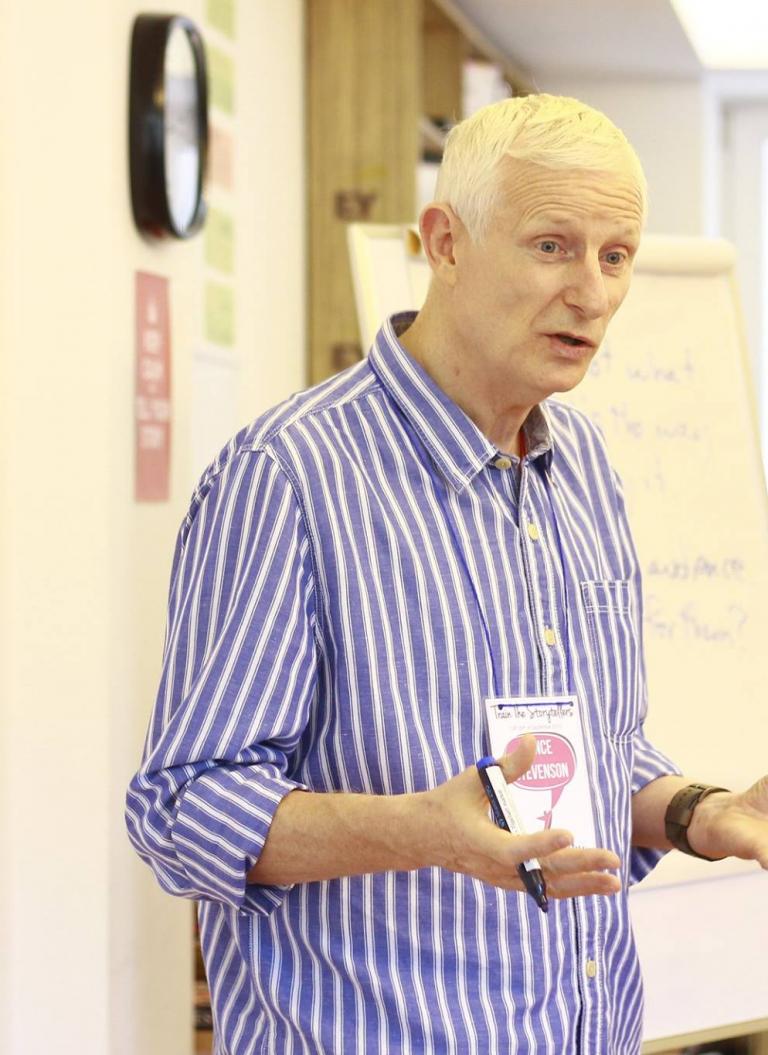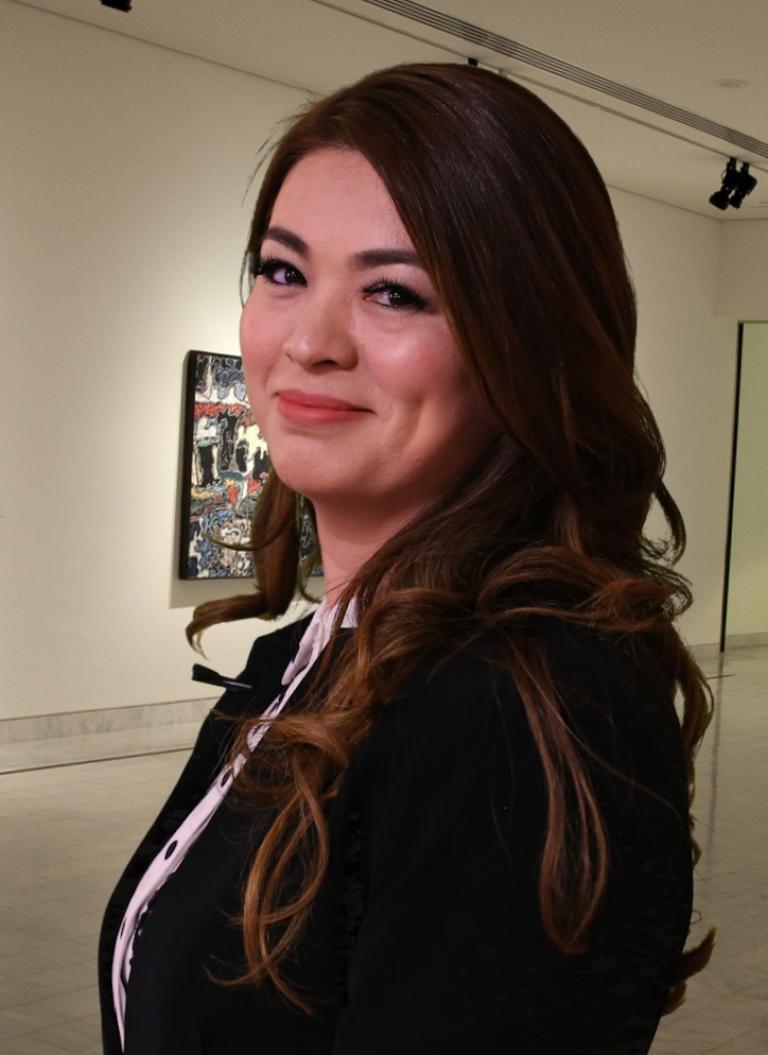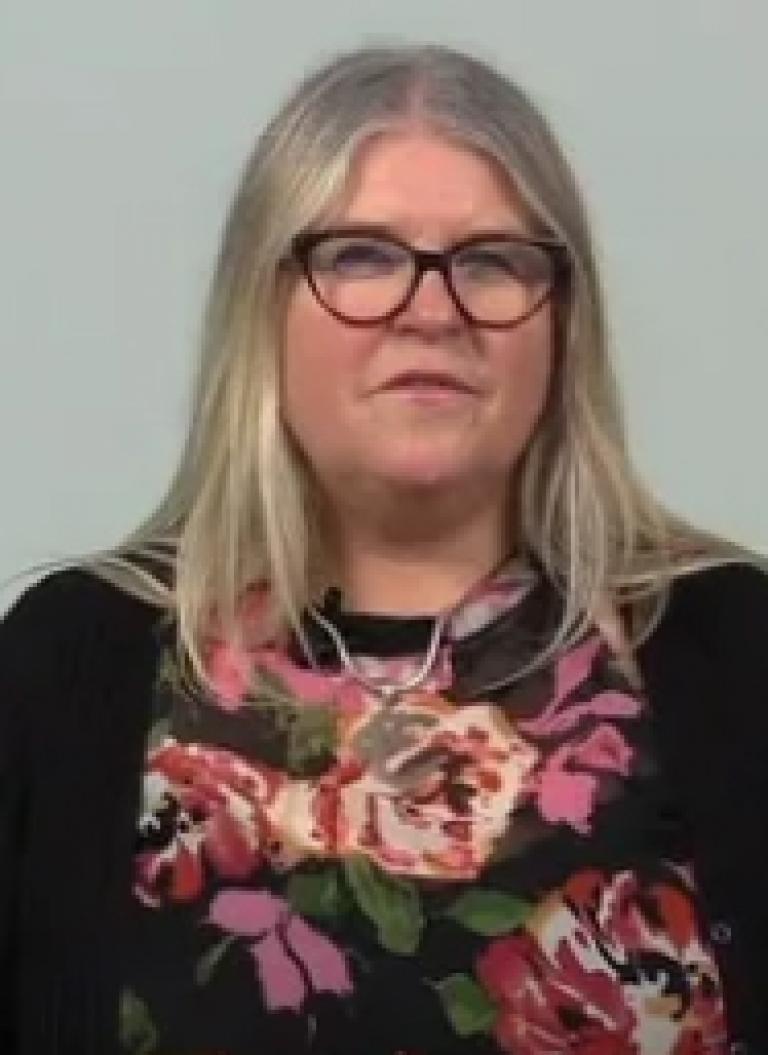
Free Video Resources
Free Video Resources Hi, my name is Vince Stevenson, and I was one of the founders of the College of…

Are you open to the possibility that you can improve your relationship with public speaking? Based in King's Cross, London, our niche public speaking courses and train the trainer courses offer numerous concepts, principles, models, and techniques, all delivered with encouragement, support, and infectious conviction. The College of Public Speaking London has you covered.
We provide public speaking training for professionals from all disciplines. It's never too late to build authority with your public speaking skills.
Expect our train the trainer and public speaking courses to be interactive, fun, and confidence-building. They expose you to a treasure trove of trusted training techniques, templates, and traditions.
Google Testimonials
The College of Public Speaking 2006 Ltd uses a tried and tested methodology that has proven effective with millions of budding speakers worldwide
Are you open to the possibility that you can change your relationship with public speaking for the better? Trust our public speaking courses in London.
Confident public speaking is a career-defining skill. Composed presentations require theoretical planning and delivery excellence. Your needs are met through our catalogue of public speaking courses, workshops, and train the trainer courses. Our professional classes are accredited by CIMA, the Chartered Institute of Management Accountants. CIMA's parent group Pearson is the world's largest private educational concern. We hold accreditations with the Institute of Leadership and Management.
The founders of The College of Public Speaking 2006 Ltd met as members of a voluntary organisation while engaging in seperate occupations of sales, IT, business leadership and marketing.
Vince Stevenson - (he/him) The Fear Doctor - Trainer of Trainers and Public Speaking Course devotee
Vince is a well-known public speaker and course trainer, and has won several awards for leadership, education, and development. He is a founder of the College of Public Speaking in London, UK, and serves as Education Director, managing all aspects of public speaking course delivery and content. Vince is also one of the UK's leading public speaking coaches. He has worked with leaders across the political, industrial, and financial spectrums, as well as in numerous humanitarian roles.
The exploration of Personal Development as a discipline transformed my life. I find no problems or challenges that can't be overcome as long as you continue to learn and grow. Personal Development is at the heart of life's journey.
I have overcome many challenges, both personally and professionally. Whenever I face a new obstacle or hit a plateau, I know it is time to learn and grow. This approach works every time. Despite the size of the problem, when I grow, the problem dissipates.
Jo is an expert in communication skills, storytelling, presentation and more.
She brings a wealth of related experience to the Speak Out and Inspires workshop.
We regularly post insights, tip and tricks on speaking, managing and all related topics. See below for the most recent posts or check out the blog page for all our tailor made resources.

Free Video Resources Hi, my name is Vince Stevenson, and I was one of the founders of the College of…

Welcome to the Training the Trainer Podcast with Vince Stevenson In the coming months, I will be interviewing…

Do you want to develop your training skills on our 2-day Training the Trainer courses in London's King's…
How was your baptism into the world of public speaking? I would ask you to continue reading if it were anything as bad as mine.
Interesting question. When you were a baby, you couldn't talk. You communicated by smiling or crying and hoped your loved ones could decode it. You didn't know how to ride a bicycle or read and write. You didn't understand numbers or how and why it went dark and light every day. You didn't understand the concept of today, tomorrow, or yesterday. You didn't understand the rules of football, cricket, or how to drive a car. You learnt all these things by trial and error, repetition, and a healthy desire to show that you're just as capable as everybody else. We learn life skills so we're not left behind.
We don't mind if we make mistakes when we're alone and society isn't judging. But with public speaking, there's no hiding place. The word 'public' is quite intimidating. We have an ego and self-esteem, and we dread the thought of diminishing ourselves in front of friends, family, and colleagues. Some call it 'social quicksand'. Psychologically, we retreat; avoidance seems like the best strategy. That's fine, but see it more as a tactical withdrawal, because in the 21st century, there's no hiding place. Every job requires you to be an excellent communicator, both written and verbal. So don’t delay your journey to excellence.
We suffer anxiety where and when we feel we can't control the outcomes. Asking somebody on a date, exams, job interviews, and competitive sports create anxiety. You become anxious because you care about the outcome. But life is a contact sport. You must be in it to win it. You can tactically withdraw for a while, but you know it's only a question of time before the grim reaper returns.
The symptoms are quite unpleasant and differ from person to person. What follows can also be seen as a panic attack. In a fraction of a second, a part of your brain called the Amygdala sends a signal through your Vagus nerve (part of the central nervous system), and adrenaline is released from your adrenal glands, which sit on top of your kidneys. This triggers a range of physiological manifestations in your body. Firstly, an increased heartbeat. It might feel like you're out of sync with your breathing and can't catch your breath. Some people think that they're going to die, which is a good reason to avoid such situations. Secondly, clammy hands and profuse sweating. Your body warms up, and it cools itself by sweating. Some folks go red or purple. Thirdly, tightness and dryness in the throat. The physiological reactions switch off your salivary gland, which is pivotal in the digestive process. Fourthly, we call the sensation butterflies, but you're experiencing waves of blood and oxygen evacuating from the digestive system to your arms and legs. I repeat - this all happens in a fraction of a second. Some people think they're ill and wonder what happened. What happened was a brilliantly effective evolutionary reaction called a survival mechanism. We go into greater detail on our courses.
The best way to manage it is by deep breathing techniques. You might feel a bit wobbly, so the first thing to do is to find support. It could be a wall or leaning against a car, or if you’re indoors, take a chair. Breathe in through the nose for five seconds, hold your breath for five seconds and slowly exhale in a controlled manner for eight seconds. This sends a signal to your parasympathetic nervous system to slow the heart down. Resuming control of your heartbeat is the goal and top priority. Similarly, you can try the exaggerated sigh. Breathe in through the nose for five seconds, hold your breath for five seconds and in one large breath exhale forcefully while flicking out your arms. This exercise resets your nervous system and returns your breathing to a normal state.
Firstly, we’re chatting and talking all day to our friends, family, and colleagues. We do it effortlessly and spontaneously. It’s dynamic and these conversations don’t require notes or rehearsal, and they can jump tangentially from one subject to another, often without returning to the original subject matter.
Alternatively, speech making has a purpose, it’s timebound and it’s delivered for and on behalf of an audience. Without an audience, you don’t need a speaker. It’s that simple. So, the speech is always about providing relevant information and value to them. I know why it’s easy for inexperienced speakers to imagine that the speech is all about the speaker. But it isn’t, the speaker is the delivery mechanism. The more you focus on the needs of the audience, the less it feels that it’s about you. That alone reduces anxiety.
This is the easiest of answers. Public speaking is a subjective skill which begs the question, what are your success criteria for perfection? There are some great scientific minds in the world, and nobody has been able to define those criteria. Getting the rest of the speaking world to agree them would be the next sticking point. Effectively, you’re setting yourself up for failure. There are many subjective disciplines: politics, economics, marketing, branding, cooking – any discipline that requires judging like gymnastics, high diving, martial arts, boxing. You can have objective criteria, but objectivity is purely subjective. Judges all see the same thing in the same moment and score if differently. Therefore, if your goal is perfection, you’re trying to achieve the impossible dream, and you’ll come up short every time. Every minor idiosyncrasy could dismantle what was otherwise an excellent delivery. If you aim to be the best that you can be, there’s every chance of success and you have every reason to be proud of your achievements.
Ask any excellent speaker the secret of their success and they’ll tell you it’s because they practice regularly. By practicing what works, you become more consistent at improved outcomes. Like all skills, public speaking can be broken down into techniques (see question 1). The secret is to execute the correct technique at the correct time, and those two things only combine with regular practice.
Barack Obama is a great speaker, and he worked hard on his communication skills as President of the US. Don’t forget he had the support of his seventy strong Whitehouse communication team. For the other 99.999% of us, we’re lone wolves and need to back our judgment. Trial and error can take some time, but it works. As you progress, your self-belief kicks in, as does your confidence.
If you need help, it’s best to work with somebody who has experienced the best and worst of the public speaking world. In my first book entitled, The Fear Doctor, I describe myself as a ‘recovering speaker’. I had a panic attack in front of the Board of the Co-Op in Manchester in 1984, which, let’s say, was a huge setback, but I was determined not to allow my anxiety to negatively impact my professional life. A few years later, I became a trainer, and I have since founded a speakers’ club, become Area and District President, and participated as a member of the National Assembly. I was a national speech finalist, I’ve spoken at many international conferences, and founded the College of Public Speaking in 2006. Since then, my speaking opportunities have sent me to China, Kurdistan, Bangladesh, and across Europe. Not to mention pursuing a relentless stream of relevant CPD accreditations. I am currently contracted to several corporate companies offering training and consultancy. They seem happy with the impact I have on their staff.
That’s easy, click on the link and it will take you to the Fear of Public Speaking page
"An exceptionally useful day's training, delivered in a positive and personanable manner, very enjoyable and significant food for thought. Thank You."
"The anxiety is gone - now that I understand it. Not only can I make a presentation - I feel I have so much to give now. It's quite a transformation."
"Since attending the course, I feel like a completely different person; more confident, relaxed and easy going. I gave a speech at work last week and it went so so well."









